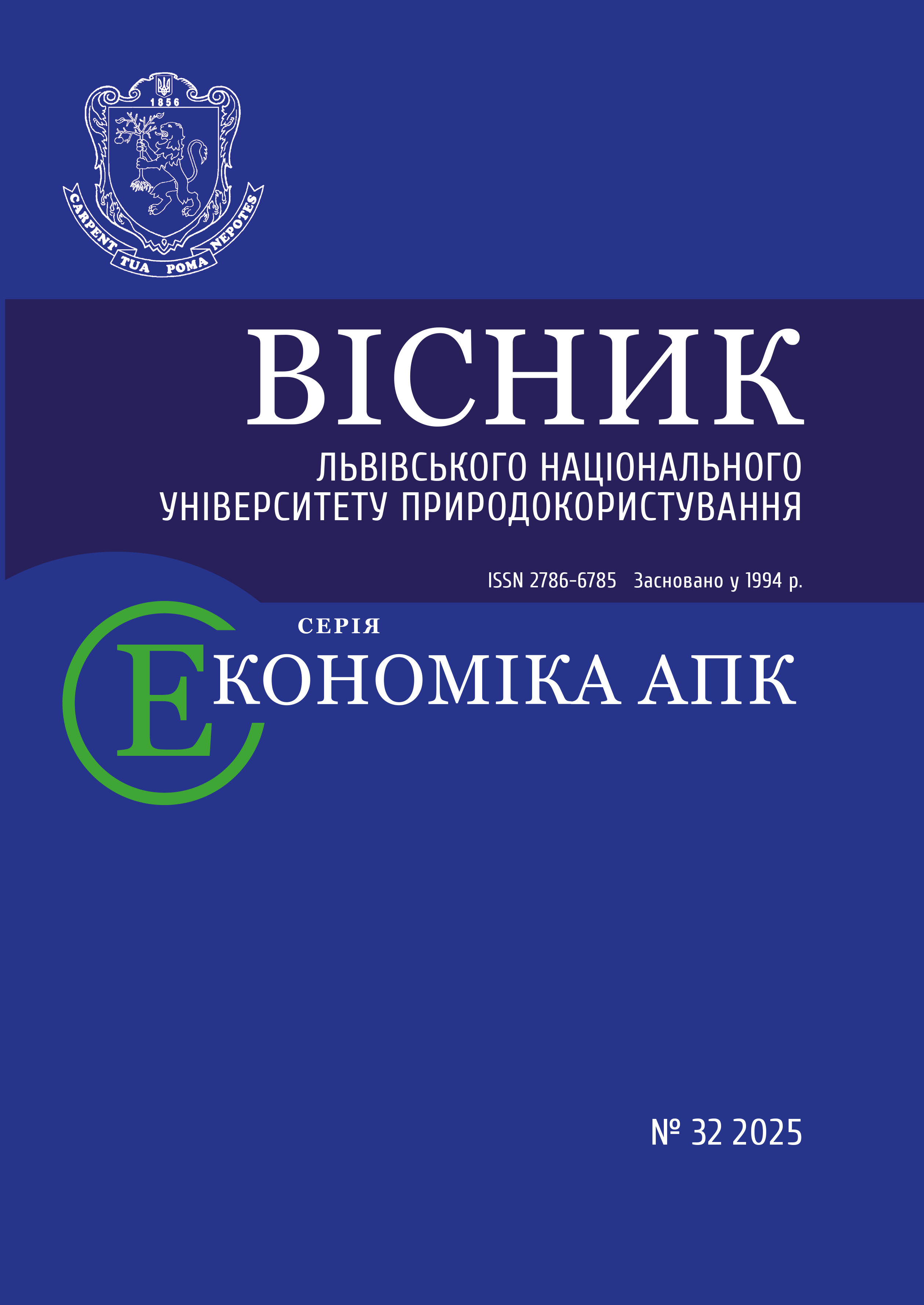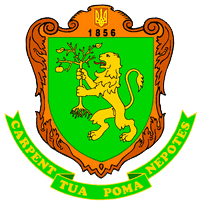REVERSE LOGISTICS OF LIVESTOCK WASTE BETWEEN PRODUCERS AND SPECIALISED STATE-OWNED ENTERPRISES
DOI:
https://doi.org/10.31734/economics2025.32.087Keywords:
reverse logistics, livestock waste, processing, recyclingAbstract
This scholarly article addresses the issues of reverse logistics for livestock waste, which plays a crucial role in ensuring effective waste management, reducing the negative environmental impact, and supporting the sustainable development of the agricultural sector. The principal stages of the logistics process, including the collection, transportation, processing and disposal of waste, are analysed. Particular attention is paid to the interaction between livestock producers and specialised state-owned enterprises engaged in waste processing.
The author examines the organization of reverse logistics for livestock waste between producers and specialized state enterprises. The key stages of the reverse material flow - collection, transportation, processing, and disposal of biological waste - are analyzed. The main challenges and barriers to implementing effective logistics schemes in this field are identified. Special attention is given to the environmental and economic aspects of reverse logistics, as well as potential methods to optimize processes using modern technologies and state regulation.
The article highlights the key problems nd challenges faced by the participants of the logistics chain, such as the organisation of an efficient system for waste collection and transportation, adherence to environmental safety regulations, and the optimisation of processing costs. Additionally, it considers the issues of the regulatory and legal framework governing reverse logistics for livestock waste and examines the potential for innovative technologies to enhance processing efficiency.
Drawing on the conducted research, the study presents conclusions regarding opportunities to enhance existing approaches to livestock waste management and offers recommendations to foster collaboration between producers and state-owned enterprises. The research findings have significant implications for professionals in logistics and agriculture, as well as for government policymakers responsible for environmental regulation.
References
Bublyk M. I., Koropetska T. O. Reverse logistics as an element of the mechanism of regulation of industrial losses of industrial enterprises (n.d.). URL: //ena.lp.edu.ua:8080/ bitstream/ ntb/16725/1/24-Bublyk40-42.pdf [in Ukrainian]. (Accessed June 05, 2025).
Kolodiichuk I. A. Waste and Their Positioning within the Territorial Socio-Economic Systems. Socio-Economic Problems of the Current Period of Ukraine: Collection of Scientific Papers/NAS of Ukraine. SE “Institute of Regional Studies named after M. I. Dolishny of NAS of Ukraine"; Ch. Ed. V. S. Kravtsiv. 2017. Issue 6 (128). P. 84–88.
Kolodiichuk I., Kolodiichuk V. Formalization of the waste management task in Ukraine for ensuring the environmental stability of Eastern Europe. Journal of Eastern European and Central Asian Research (JEECAR). 2020. Vol. 7, No 1. P. 51–60. DOI: http://dx.doi.org/10.15549/jeecar.v7i1.353 Accessed on March 23, 2021.
Kolodiichuk V., Dubnevych Yu., Voinycha L., Cherevko I., Kolodiichuk I. Definition and classification of waste in the agricultural enterprises’ business activity Scientific Papers Series Management. Economic Engineering in Agriculture and Rural Development. Vol. 22, Issue 1, 2022.
On Waste: Law of Ukraine of March 5, 1998 No 187/98-VR / Verkhovna Rada of Ukraine. Gazette of the Verkhovna Rada of Ukraine. 1998. No 36–37. Art. 242.
Popivniak R., Dubnevych Yu., Dubnevych N. Introduction of the concept of a circular economy in Ukraine. Agrarian Economy. 2020. Vol. 13, No 3–4. P. 27–32.
The Ministry of Agrarian Policy calls on producers to update data on the number of existing livestock. URL: https://www.agro-id.gov.ua/ (Accessed June 05, 2025).
The number of livestock at the beginning of 2023 has been calculated. URL: https://kurkul.com/news/32306-porahovano-kilkist-hudobi-na-pochatok-2023-roku (Accessed June 05, 2025).
Through the joint efforts of the Government, the State Food and Consumer Service, and the Volyn Regional State Administration, the situation at the Kovel Veterinary and Sanitary Plant has been stabilized. URL: https://www.kmu.gov.ua/news/249976522 (Accessed June 05, 2025).
Ukrainian Veterinary and Sanitary Plant branches. URL: http://uvsz.org.ua/filiyi/ (Accessed June 13, 2025).


